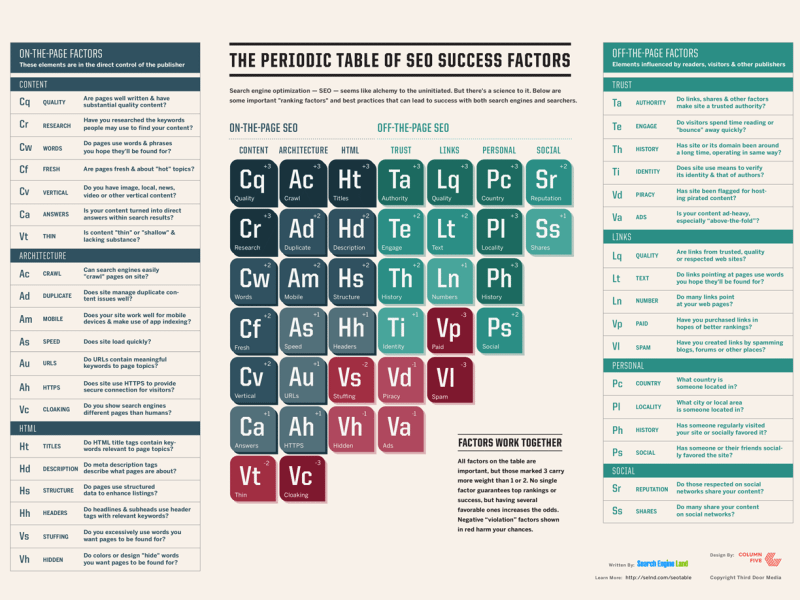
What is Search Engine Optimization?
Search Engine Optimization strategies are unique to each SEO company and are built of a myriad of different techniques to drive traffic organically (not paid) to your website, hopefully translating into new customers. Search engines employ algorithms that take into account how a website is built, unique content, user-friendliness, links, videos, images and even local listings, such as Google Maps, to serve up a list of sites in a ranked order for the end-user. Get A Free SEO AuditHouston Search Engine Optimization Agency
 Organic or primary search results on major search engines such as Google, Bing and Yahoo, are based on items that the search engines consider to be relevant to the searcher’s query or search terms. Every SEO company employs different strategies to enhance a website’s rankings in the search engines, but the main goal is to attract organic or non-paid searchers via the SERPs on search engines. An easy way to look at some search engine optimization strategies is to examine Search Engine Land’s “Periodic Table of SEO.”
To assist our team in giving you a specific price quote, please fill out our free website evaluation.
The following is a non-inclusive list of ways Bizopia begins the process of building a website and online marketing campaign, and is a sampling of some of the different SEO processes that our team uses in custom web design and website development:
Organic or primary search results on major search engines such as Google, Bing and Yahoo, are based on items that the search engines consider to be relevant to the searcher’s query or search terms. Every SEO company employs different strategies to enhance a website’s rankings in the search engines, but the main goal is to attract organic or non-paid searchers via the SERPs on search engines. An easy way to look at some search engine optimization strategies is to examine Search Engine Land’s “Periodic Table of SEO.”
To assist our team in giving you a specific price quote, please fill out our free website evaluation.
The following is a non-inclusive list of ways Bizopia begins the process of building a website and online marketing campaign, and is a sampling of some of the different SEO processes that our team uses in custom web design and website development:
How Bizopia OnBoards a New Website Design & SEO Client
Online Presence & Brand Marketing Evaluation
Competitive Research (Keyword & Competitor Research)
Competitive research is conducted to help us get a clear picture of current search engine ranking performance by your competition. This research includes studying the sites of all your competitors who already have high search engine rankings to discover the keywords for which they are being ranked for. We then analyze your current meta-tags and recreate them based on the keywords discovered through our research of your industry.
Copywriting & Content Creation
SEO copywriting is the process of writing unique content for your website. Content must be keyword-rich, yet search engine-friendly while remaining appealing to the human reader. Keywords relevant to your company or website are strategically used throughout your website so that your site has an increased chance of ranking high when the search engine robots crawl your website. With direct, highly targeted traffic to your website, your customers will be provided with the specific information they are searching for, which will hopefully lead to an increase in sales for you. SEO copywriting is a service that is priced according to your site’s specific needs and budget. See SEO Copywriting for more details.
Title Tag Development
Meta Description Tag
Equally vital is the meta description tag. This tag provides a brief summary of the content of your web page. The description appears in the SERPS (search engine result pages) just below the title tag hyperlink. We will make sure that the meta description tag is clear, concise, compelling and brief, and that it includes your top keywords. The words used must “tease” or convince the inquiring visitor and potential customer to check out your website further. Each page must and will be uniquely customized so that every web page has a diverse collection of meta tag descriptions.
Meta Keywords Tag
Though not as relevant of a tag as the title and description tags, the meta keyword tag is still recognized by some search engines. We include a number of meta keywords for your site that are relevant only to the content of the webpage to which they are assigned. Listing keywords that do not actually appear on the page is considered SPAM by the search engines. In fact, it is this practice that has rendered the keyword tag irrelevant to many search engines.
XML & XHTML Site Map Creation
Ongoing Link-Building
A link from a trusted website to your own is like a “vote” of popularity in the eyes of search engines. The more relevant the inbound link or “vote,” the more valued and trusted the search engines see your website. Industry-related inbound links to your website will give you an even more relevant “vote” compared to links from non-related websites. There are two specific types of link-building techniques: The first is a one-way link, and the other is a reciprocal link. One-way links are websites that have a link to your website. Reciprocal links are like one-way links except they require you to link back to that site linking to you, so essentially you would be trading a link with another relevant website.
There are different ways of developing link-building campaigns for your website. Here are a few examples:
- Search Engine Optimized Press Releases. This is the most powerful way to increase inbound links and website traffic. It must be timely, relevant, well written and distributed.
- Link requests to trusted sites. This strategy involves requesting other websites to exchange (trade) links with relevant industry-related websites by extending a link to their site from your own site.
- Social Networking. Taking advantage of social networking sites like Twitter or Facebook can help you connect with other people and websites in like communities.
Web Site Load Speed
Search Engine and Directory Submissions
Are you interested in getting started driving traffic to your current or new website? We are located in southwest Houston, answer our own phones and are here 8:30-5:30p Monday – Friday, if you’d like to drop by and meet the team. We’d love to show you around, chat a bit and get you moving down the right track. Call today – 832-327-3230!